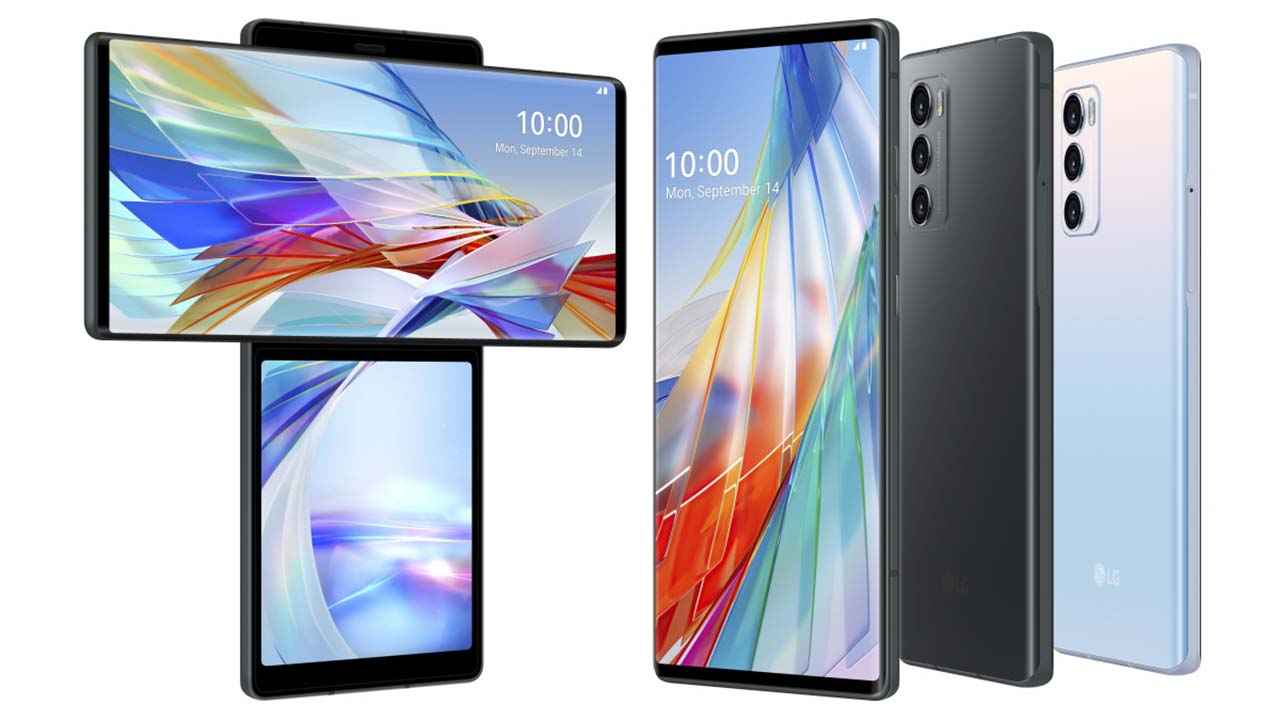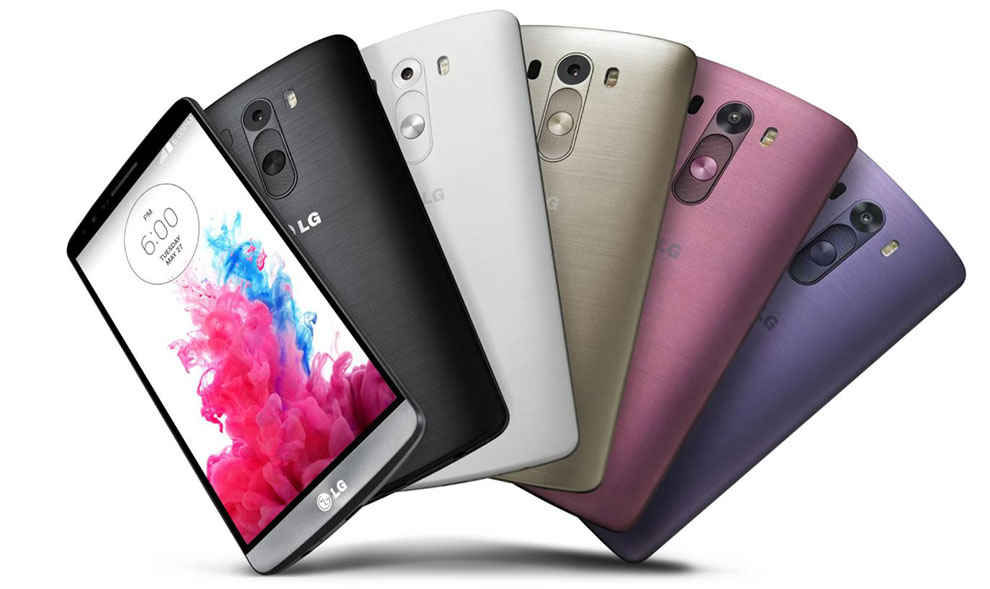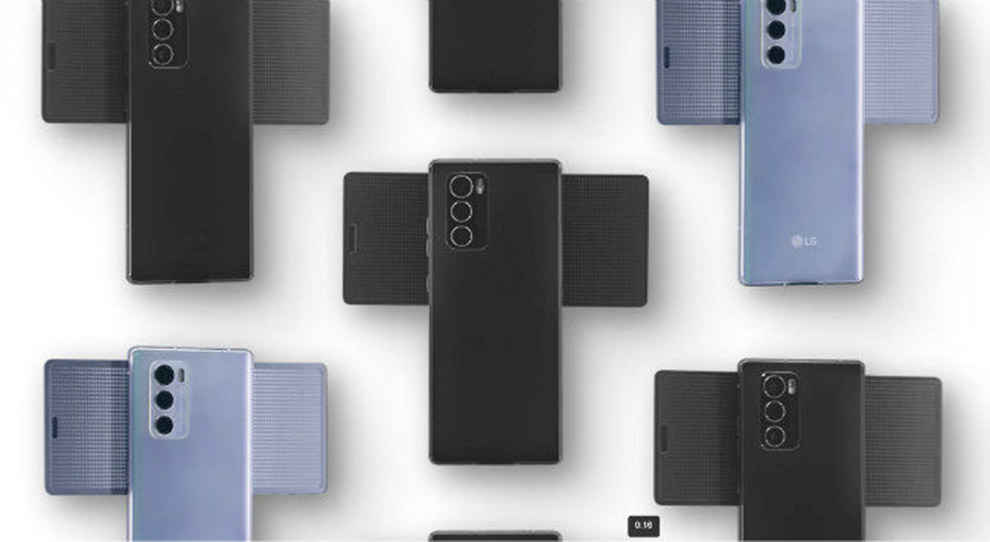LG quits smartphone business world-wide: Here’s a look at five of its most iconic phones
LG has announced it's quitting the smartphone business.
LG has a number of iconic phones to its name over the years.
The LG Wing and LG G3 are some of its most iconic phones.

One of South Korea's biggest tech giants, LG, has confirmed its exit from the smartphone market worldwide. The company has confirmed that it will be closing down its smartphone business across the globe to focus on other segments of the market including “electric vehicle components, connected devices, smart homes, robotics, artificial intelligence and business-to-business solutions, as well as platforms and services.”
 Survey
SurveyLG has blamed the "incredibly competitive" nature of the smartphone business for its exit, and has also explained that this move will be in a phased manner, with the company planning to clear out existing stock and also continuing to provide service support and software updates to products “for a period of time which will vary by region.”
The company hasn't said anything on potential layoffs as of now, and has only said that "details related to employment will be determined at the local level.” LG's decision to shut down its smartphone manufacturing unit comes after the company racked up losses of $4.5 billion in the past six years.
Reports suggest the company had initially planned to sell part of its smartphones business, but eventually decided against the move and has now ended up exiting the business worldwide. Despite the mounting losses, LG's decision to quit the business entirely is quite surprising as the company still remains popular in certain markets across the globe — for example, North America and South Korea.
Part of the company's popularity stems from the fact that LG has in the past manufactured some really impressive phones. There have even been some that have helped shape the future of the smartphone industry.
Here's a look at LG's five most iconic phones.
LG Nexus 5
One of the company's most iconic phones to date is the Nexus 5. Built-in collaboration with Google, this phone offered a lot more than just stock Android. At the time, the phone featured some fine specs, and also a design that was quite premium both in terms of look and feel. At the heart of the device was the Qualcomm Snapdragon 800 SoC with a quad-core 2.3 GHz Krait 400 CPU paired with 2GB of RAM. However, the most impressive thing about the device was its gorgeous 5-inch display with a resolution of 1920×1080 pixels.
The LG Nexus 5 also featured some really nice cameras as it came with an 8MP primary lens and a 1.3MP lens for selfies. The phone also promised good battery life with its 2300mAh pack. While these may not sound much for 2021, all the hardware mentioned above was quite good for 2013 when the phone was initially launched by the company.
LG G3
LG first launched a G series phone in 2012 in the form of the LG Optimus G. Back in the day, this flagship series brought with itself some really premium phones, flaunting some of the most high-end specs and feature sets of their times.
But if we were to choose one device from the G series to list here, then that would definitely be the LG G3. One of the best phones of 2014, this device was only held back by the company's sluggish Android-based software. But in terms of specifications, the G3 was as good as anything else in the market.
The phone offered a 5.5-inch Quad-HD IPS display, with a resolution of 2,560×1,440 pixels, 3GB of RAM, and a Qualcomm Snapdragon 801 processor. The device also offered support for premium technologies such as wireless charging and came with a 13-megapixel camera with OIS+ technology with a laser auto-focusing system. Pretty impressive for 2014, right?
LG V30+
Another iconic device from LG which helped heighten the pace of innovation in the smartphone industry was the V30+. The phone came flaunting really impressive hardware that was really great for its time. However, the most interesting thing about the device was its 6-inch OLED display edge-to-edge display with an 18:9 aspect ratio. It also hid under the hood the year's most powerful chipset, the Qualcomm Snapdragon 835 SoC.
Launched in 2017, it was also one of the first devices to feature more than a single lens at the back — 16 MP sensor with an f/1.6 aperture and a second 13 MP sensor with an f/1.9 aperture. The phone also offered a 5 MP wide-angle front camera. Sadly, it was also the time when phones started moving towards accomodating non-removable battery packs. In this case, a 3,300 mAh battery.
LG Wing
Launched in 2020, the LG Wing is a truly innovative device that was more than just a regular device. It attempted to be the foldable phone killer, but sadly low demand for the product nipped any such attempts in the bud.
The phone came with two screens, with a main 6.8-inch display and a second 3.9-inch display. Because of its wing-like design, the phone allowed users to watch shows horizontally on the main screen while using the second screen for sending texts or surfing the web. Interestingly, the phone also offered a Gimbal Motion Camera with support for four different shooting modes. The LG Wing also offered a triple-camera set-up in the back, headlined by a 64MP primary camera, a 13 MP ultrawide lens, and another 12MP ultrawide lens.
LG Voyager
Back when Apple was still finding its feet in the smartphone business with the launch of the first iPhone, one of the smartphone's biggest competitors in the market was the LG Voyager. Dubbed the "iPhone Killer" by many, the phone from LG did not offer support for fancy productivity features, but offered a media player which made it a good entertainment device. It lacked in the features department, but for a phone launched in 2007, it offered a really interesting design, and also a QWERTY keyboard to help establish itself as one of LG's most iconic phones.
Sushant Talwar
Sushant Talwar is a full-time foodie who reviews cool gadgets and binges on TV shows when he is tired of playing video games. He is also in love with football and thinks Manchester United is a religion View Full Profile

